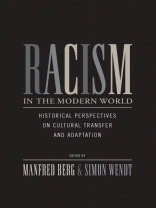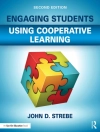Emphasizing the global nature of racism, this volume brings together historians from various regional specializations to explore this phenomenon from comparative and transnational perspectives. The essays shed light on how racial ideologies and practices developed, changed, and spread in Europe, Asia, the Near East, Australia, and Africa, focusing on processes of transfer, exchange, appropriation, and adaptation. To what extent, for example, were racial beliefs of Western origin? Did similar belief systems emerge in non-Western societies independently of Western influence? And how did these societies adopt and adapt Western racial beliefs once they were exposed to them? Up to this point, the few monographs or edited collections that exist only provide students of the history of racism with tentative answers to these questions. More importantly, the authors of these studies tend to ignore transnational processes of exchange and transfer. Yet, as this volume shows, these are crucial to an understanding of the diffusion of racial belief systems around the globe.
Daftar Isi
Introduction
Manfred Berg and Simon Wendt
Chapter 1. The Racialization of the Globe: Historical Perspectives
Frank Dikötter
Chapter 2. How Racism Arose in Europe and Why It Did Not in the Near East
Benjamin Braude
Chapter 3. Culture’s Shadow: “Race” and Postnational Belonging in the Twentieth Century
Christian Geulen
Chapter 4. Racism and Genocide
Boris Barth
Chapter 5. Slavery and Racism in Nineteenth-Century Cuba
Michael Zeuske
Chapter 6. Towards a Transnational History of Racism: Wilhelm Marr and the Interrelationships between Colonial Racism and German Anti-Semitism
Claudia Bruns
Chapter 7. Transatlantic Anthropological Dialogue and “the other”: Felix von Luschan’s Research in America, 1914–1915
John David Smith
Chapter 8. Transits of Race: Empire and Difference in Philippine-American Colonial History
Paul A. Kramer
Chapter 9. Interrogating Caste and Race in South Asia
Gita Dharampal-Frick and Katja Götzen
Chapter 10. The Making of a “Ruling Race”: Defining and Defending Whiteness in Colonial India
Harald Fischer-Tiné
Chapter 11. Glocalising “Race” in China: Concepts and Contingencies a the Turn of the Twentieth Century
Gotelind Müller-Saini
Chapter 12. Race without Supremacy: On Racism in the Political Discourse of Late Meiji Japan, 1890–1912
Urs Zachmann
Chapter 13. Hendrik Verwoerd’s Long March to Apartheid: Nationalism and Racism in South Africa
Christoph Marx
Chapter 14. The “Right Kind of White People”: Reproducing Whiteness in the United States and Australia, 1780s–1930s
Gregory D. Smithers
Chapter 15. Race and Indigeneity in Contemporary Australia
A. Dirk Moses
Notes on Contributors
Selected Bibliography
Tentang Penulis
Manfred Berg is Curt Engelhorn Professor of American History at the University of Heidelberg. From 1992 to 1997, he was a research fellow at the German Historical Institute in Washington, D.C. From 2003 to 2005, he served as the executive director of the Center for USA-Studies at the Leucorea in Wittenberg. Berg is a specialist in the history of the African American civil rights movement and race relations and has published numerous books and articles on American and international history. His latest titles include Popular Justice: A History of Lynching in America (Chicago 2011) and Globalizing Lynching History (co-edited with Simon Wendt, Palgrave 2011)












